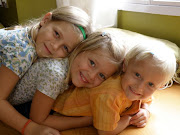From inside the train, I looked out at the scene on the platform and began to observe individuals. I noticed the man at the book stall, the beggar at the bottom of the stairs and the well-dressed businessman looking in a rush. I wondered who I would meet in India and who would sit in the seat beside me. I rested my head against the window and closed my eyes.
Minutes later, I awoke as the train lurched forward. To my amazement, the time on my watch matched the time on my ticket. The seat beside me had been occupied as I dozed and the elderly man with a bright red turban intruded upon me with a gleaming smile. I knew enough about Indians to know that this man was a Sikh – the turban and long beard being distinctive features. I had come to learn this fact from an Indian classmate of mine in junior high, whose grandfather regularly picked him up from school and displayed the same two features. I had also learned that the Sikh religion is neither Hindu nor Muslim, though as some explain simply, it is a combination of the two. Of course, this is an oversimplification. Though Sikhism was born and is based in the state of Punjab in India’s Northwest, Sikhs have spread all over India, and indeed, all over the world. A man named Guru Nanak is considered the founder of Sikhism and the first of twelve gurus, or teachers. The last guru is a book, the Scriptures of Sikhism, which they call the Guru Granth Sahib. Sikhs, wherever they live, are known for being both very devout in their religion and gregarious in their work.
The old man’s first question to me, I’m sure, was heard throughout the coach: "What is your country?"
I was dumbfounded. It took me far too long to answer, but eventually it came, "The States, USA." I blinked my eyes twice, straightened up in my seat and shifted myself to face him.
"Oh", his happy reply came out like a song, as loud and obnoxious as the question, "my brother lives Buffalo. He is businessman."
In the pause before my answer, I admired the simple grammar he was using, not to mention the enthusiasm he was showing toward me. "I’m from Idaho". I spoke slowly and loudly, surprising even myself. Why was I talking like that?
I’m sure he had never heard of Idaho, yet he smiled politely and wagged his head repeatedly, as Indians do. It’s an amazing manoeuver, head-wagging, that is. It’s not a nod, neither up nor down. It’s a combination of both. The top of your head goes one way and your chin goes the other. It tends to look a bit like one of those bobble-head toys, with the head on some kind of elevated spring. I found that I couldn’t really teach myself to do it, even though I practiced it in the privacy of my hotel room. But eventually, within the first few days, it just happened – I was doing it without effort. In that way, it was more of a discovery than an achievement, but very satisfying nonetheless. It was my first concrete step in learning and adopting something of India’s culture.
The man’s next question, as I would learn, was the classic question asked by almost every Indian I would meet: "You like India?"
"I love it, so far", which was hardly true. How could it be? I had experienced so little and was undecided about most of my experience. I guess it was a statement of intent more than anything, and sincere at that. Of course, it was also exactly what my new friend wanted to hear. His smile now was gleaming brighter than ever.
"I just arrived yesterday," I continued, nodding. "Flew into Delhi, spent the day in Paharganj."
At that point, the ticket master stepped up to our seats and requested our tickets. I pulled mine out of the thin pouch around my waist, separating it from my passport, my airline ticket and my money. The tall man with a long black moustache looked down at us sternly as he handed our tickets back to us, then he broke into a huge smile as he looked directly at me. He looked sharp in his black uniform. I responded with a gentle, "Thank you," feeling like I had just been officially welcomed to India. The man received my thanks only by closing his eyes gently and tilting his head down slightly to the side.
The old man beside me was still smiling and wagging his head, as he observed my exchange with the ticket master. "You will like India very much," he spoke as if to bless me.
Nodding again, I asked him in a clear voice, "What is your name?"
"Mister Singh," he answered quickly with another big smile, "Manmohan Singh!" And at that he burst out laughing.
I smiled, but didn’t understand the reason for his laughter. I looked around, bewildered. Others close to us had obviously overheard our conversation because they joined in with smiles and chuckles. I guess my face betrayed my ignorance and surprise, because when Mr. Singh looked at me again he began to laugh even more loudly.
Then, in the midst of his laughter, he took a quick breath, and burst forth with the punch line, "I am the Prime Minister of India!"
He had a powerful voice, and I had no doubt that everyone in the entire coach heard him make that wild confession. By now, I was embarrassed. Either this man was crazy or I was in the dark about one very important detail. It was probably the latter. One thing was for sure – the man sitting beside me was not the Prime Minister of India.
As I waited for the laughter to die down, I felt like an outsider, which I obviously was. I hadn’t checked yet, but I assumed that I was the only foreigner in the coach. Since arriving in India, this was the first time I had felt a little uncomfortable with being a minority. Interestingly enough, it had happened in a conversation in my own language. I know he hadn’t meant to, but Mr. Singh had definitely put me onto the defensive. I was trying to relax, and more importantly, to look relaxed.
As Mr. Singh was still catching his breath, a younger man from across the aisle leaned over and said, without a discernable accent, "The current Prime Minister’s name is Manmohan Singh. It’s a common name. Makes for a good joke."
I grinned and nodded, acknowledging to Mr. Singh and everyone else around me that I had now gotten the joke. I gave special acknowledgment to the man who had obviously felt bad for me and had kindly intervened. I appreciated that.
I’m sure that Mr. Singh had used the joke countless times since his namesake had taken office, but maybe not in a situation involving a foreigner. He had capitalized on a good opportunity. For him, it was a special moment. I granted it to him. I imagine that the laughter would be just as sweet later when he would recount the story to his friends and family members. He would try to describe the look on my face. He would embellish my reaction. He would laugh again, and his laughter would be contagious. If the humour was at my expense, that was OK. I probably needed to relax and to accept my foreignness. And Mr. Singh probably needed a good laugh.
Finally, sensing my discomfort and having pity on me, Mr. Singh took a deep breath, wagged his head once more and apologized, "Sorry."
I tried to wag my head and to make light of it all, "No problem. Good joke. My name is Todd."
As I said my name, my hand automatically extended toward him in common Western fashion. Mr. Singh turned toward me and clutched my hand firmly with both of his. He held on far longer than is appropriate in my culture between heterosexual men, but I tried not to mind. It was as if, through our hands, he was receiving me into his heart. I stayed calm. He stayed smiling. He finally did let go, and we sat in silence beside each other. I wasn’t sure what to feel, but it seemed to me that I had already endured an important experience.
When someone came around serving tea and coffee, it was a nice distraction. Both Mr. Singh and I took tea, or chai, as they call it. It was my first cup of tea in India, but not quite what I had expected. The train employee served each of us a thermos with hot water and a tea kit, equipped with one lone tea bag, some powdered whitener, and sugar. I was to learn quickly that this was hardly what having chai was all about. Most of the time, when Indians served tea the drink is prepared by boiling milk and adding loose tea and copious amounts of sugar. There are probably millions of variations on that theme, using different amounts of those ingredients and others, including spices. But in my experience, that is the basic idea. It is then commonly served in small cups, not unlike a shot of Italian espresso. Though I would enjoy many cups of chai on my trip, and many more genuine than on that train, nevertheless that first cup was still special, and it kept me awake all the way to Agra.
At the Agra train station, I said goodbye to Mr. Singh and he confidently entrusted me into the care of his countrymen. My plan was to make my way as quickly as possible to the Taj Mahal, as that was my primary goal in visiting Agra.
Blogging from New Delhi, India, from January 2008 to July 2011 (at which time we moved back to Canada). These poems, stories and reflections provide a window into my world, and maybe a mirror into yours.
mjhk in canada, 2010

A bit about me
- Mark Jonathan Harvey Klassen
- After living in India for six years (2005-2011), I moved back to beautiful British Columbia, Canada, where I live in a small town called Yarrow with my beautiful wife and our three beautiful daughters. From my home, I run a small writing services company called Namesake (www.namesake.ca).
Check out my websites and other blogs:
My articles in the MB Herald
Back in Landour, March 2011

Sailing Sisters Return, Goa, January 2011

Soph & I, Post-Parasail, Goa, January 2011

My Girls, Imperial Hotel, November 2010

Dressed up for a wedding, November 2010

Back in Landour, October 2010

Sisters, Back in Yarrow, June 2010

the happy couple in canada, June 2010

White Park Bay, Northern Ireland, May 2010

Ross Castle, Killarney, Ireland, May 2010

Cliffs of Moher, Ireland, May 2010

Lodhi Gardens, Easter Morning 2010

All in the same boat, Goa, January 2010

Sailing Sisters, Goa, January 2010

On the Ganga, September 2009

Atop Flag Hill, Uttarakhand, June 2009

Back in Landour, June 2009

Kashmir, May 2009

On my 42nd birthday, April 7, 2009

New York City, March 2009

Grand Turk, March 2009

Back in Landour, New Years 2009

St. Paul's at Charducan, January 2009

Imperial Hotel, November 23, 2008

Camping on the Ganga, October 2008

Sisters, October 2008

At Rachel's, Abbotsford, May 2008
Three Sisters, Yarrow, May 2008

back in landour, mussoorie, march 2008
New Years Day in Delhi, 2008
Cruising in Goa, June 2007

My family in Landour, Mussoorie, may 2007

My family in Yarrow, June 2006

(photo by Driediger)
Blog Archive - Previous Posts
- June 2011 (5)
- May 2011 (4)
- April 2011 (3)
- March 2011 (3)
- February 2011 (3)
- January 2011 (3)
- December 2010 (1)
- November 2010 (2)
- October 2010 (2)
- September 2010 (2)
- August 2010 (2)
- July 2010 (1)
- June 2010 (1)
- May 2010 (2)
- April 2010 (2)
- March 2010 (3)
- February 2010 (2)
- January 2010 (3)
- December 2009 (3)
- November 2009 (2)
- October 2009 (3)
- September 2009 (2)
- August 2009 (3)
- July 2009 (4)
- June 2009 (3)
- May 2009 (2)
- April 2009 (3)
- March 2009 (1)
- February 2009 (3)
- January 2009 (3)
- December 2008 (3)
- November 2008 (2)
- October 2008 (3)
- September 2008 (2)
- August 2008 (2)
- July 2008 (1)
- June 2008 (3)
- May 2008 (3)
- April 2008 (3)
- March 2008 (3)
- February 2008 (5)
- January 2008 (4)

No comments:
Post a Comment